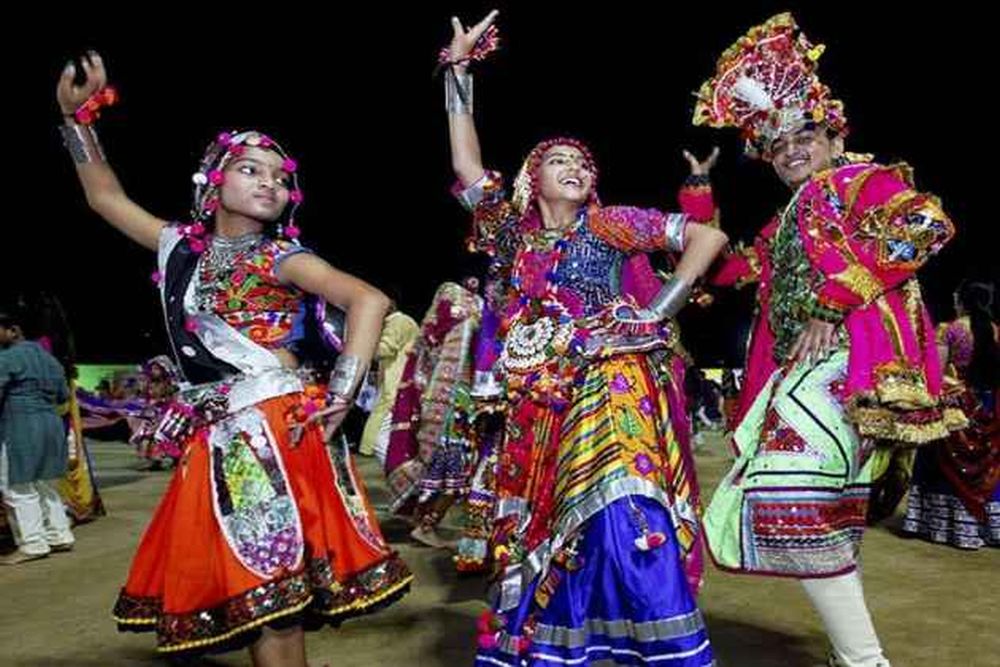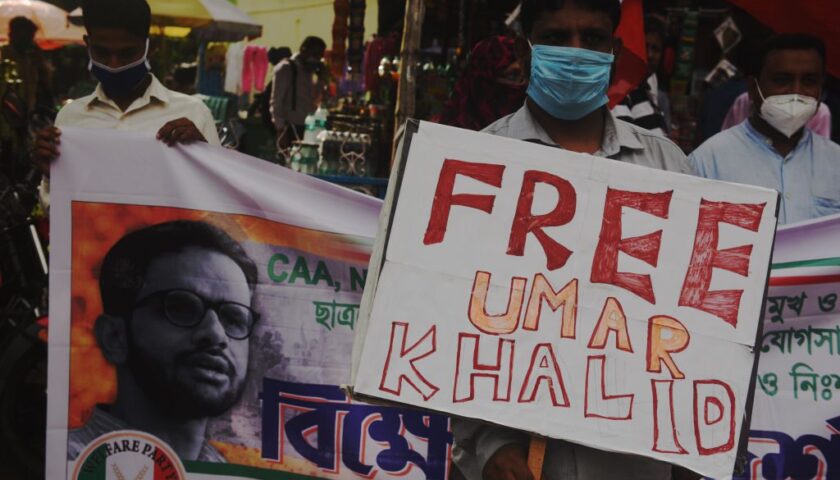Organizers of Garba in Ujjain, Madhya Pradesh, are reportedly checking Aadhaar cards and enforcing Tilak for male attendees.
The organizers of Garba in Ujjain have banned the participation of non-Hindus in the event to allegedly “prevent love jihad”, according to a media report. The organizers, Sankalp Sanskriti Sanstha, are checking the Aadhaar cards of the participants and have also enforced that the male attendees would be “welcomed with a Tilak”, The Times of India reported on Wednesday. The latter requirement is seen as a measure to verify that participants are indeed Hindus.
The report noted that the law enforcement authorities don’t seem to mind these arbitrary rules citing the event was private. “It is their private function and they have issued passes for entry to the event. What is the objection in this?” the TOI quoted SP Sachin Sharma as saying.
District Collector Kumar Purushottam, however, said that was not aware of “any such thing” and he would review it in accordance with the law if a complaint is received, as per the report.
Members of the organizing committee defended their decisions, claiming that they are “not against any religion but want to put an end to love jihad and restrict entry to those trying to spread animosity.”
The move is likely to renew debate around ‘love jihad’, a term often used to describe alleged interfaith romantic relationships that some claim are attempts at forced religious conversion. Critics argue that the term is often used to stigmatize interfaith relationships, creating an atmosphere of fear and suspicion
A controversy around Garba erupted last year when police officers publicly flogged three Muslim men by tying them to a pole after arresting them on charges of pelting stones at an event during the Navratri festival in Undhela village in Kheda district. Earlier this month, the Gujarat high court framed charges against the police officers for contempt of court for violating the Supreme Court guidelines in the DK Basu vs the state of West Bengal case, which lays down rules for police’s conduct during arrests and detentions.




